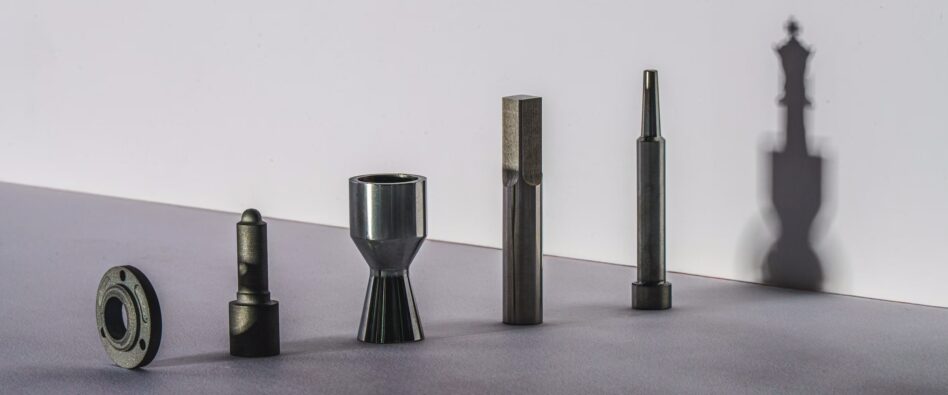Not all defense innovation is flying, drone-y things. Sometimes, it’s the very materials that make it possible to build advanced systems, like metals.
Enter: Foundation Alloy. This morning, the advanced metals manufacturing company announced a $7.5M funding round, led by Alumni Ventures, America’s Frontier Fund, Engine Ventures, El Cap, Material Impact, and Yamaha Motor Ventures. Foundation Alloy CEO Jake Guglin told Tectonic in an exclusive interview that the company will use the funding to ramp up production of its ultra-efficient metals.
Tougher stuff: You might be sitting here thinking, is metal really a thing that needs revamping? Haven’t we already mastered that? Well, according to Guglin, we haven’t.
“At this point, a lot of what is considered the state of the art is the same stuff that took us to the moon, and the core processes behind that haven’t really changed since we first started melting things together 7000 years ago,” he said.
- Traditionally, compound metals—alloys—are made by using extreme levels of heat to melt a base metal, then adding another metal to it.
- Though the resulting metal might be stronger than the base, the melting process can actually weaken the makeup of the metals—their microstructures—Guglin said.
This means that metals made with traditional production processes might not, for example, be able to withstand the heat produced by a super-powerful engine. Because of the heat required, traditional alloying can also be super energy-inefficient.
Heavy metal: Guglin, alongside Jasper Lienhard, and professors Chris Schuh and Tim Rupert, founded Foundation Alloy in 2022 to change this.
They used methods developed in MIT and UC Irvine labs—plus about $10M in initial funding—to create super-strong alloys that require zero heat to produce.
- The core of the process is known as mechanical alloying, which basically means that different metals are forced to bind together physically, rather than being melted together.
- Guglin told us to think of the technology they use as a super-advanced Kitchen Aid. They put different metal powders in it, along with little metal balls they call media. As the machine whizzes around, the tiny metal balls smash the metals together, forcing the particles to bind.
- He said that when they look at the resulting compound metal particles on the other end (after the whizzing), they’re completely homogeneous. The grains of the metal powder are also about 100x smaller than usual.
“So, we really have mixed things all the way down to the atomic level. And that’s a purely mechanical and kinetic process,” Guglin said.
Industrious: Guglin said that his company’s metals will be a game-changer for defense production in the US. Most immediately, he said they could revamp tooling—the instruments necessary to make the big, scary defense systems we all know and love.
“[Tooling] is not sexy, but is ultimately…one of the most fundamental inputs to production quality, to production rate, to production efficiencies and costs,” he said.
He said the metals could also change the game for engines, planes, and ships.
“For example, if we can create a metal that has a hundred degrees, or a couple hundred degrees, higher operating temperature than what’s possible today, that translates to jet engines that are more powerful, that can go faster and further, and that are more efficient,” he added.
Looking ahead: And on the horizon? Working with their existing automotive, defense, and space customers to make the metals even better. Then, a bigger funding round (like, within the next year) and a build-out of a larger-scale metal production facility.

